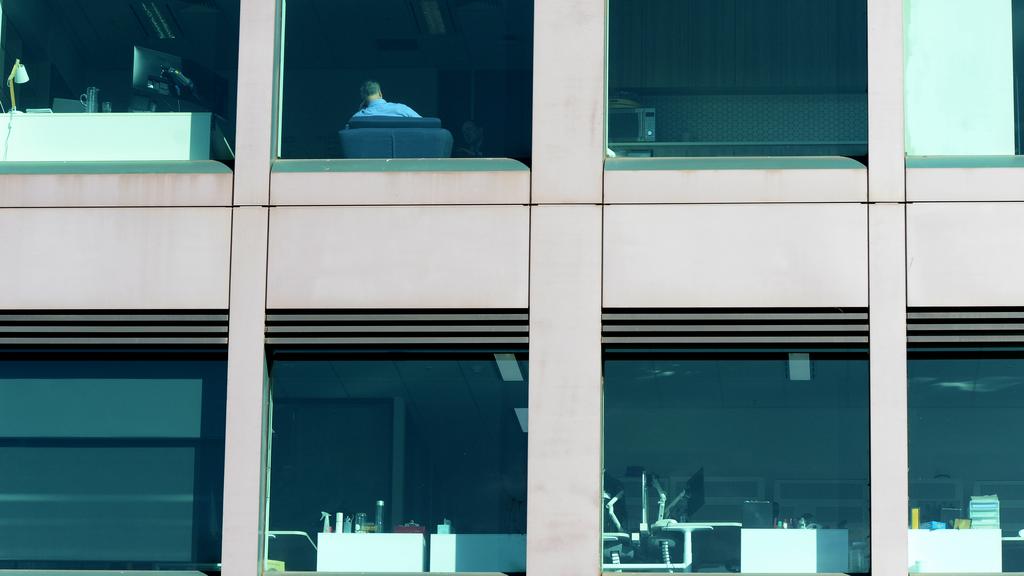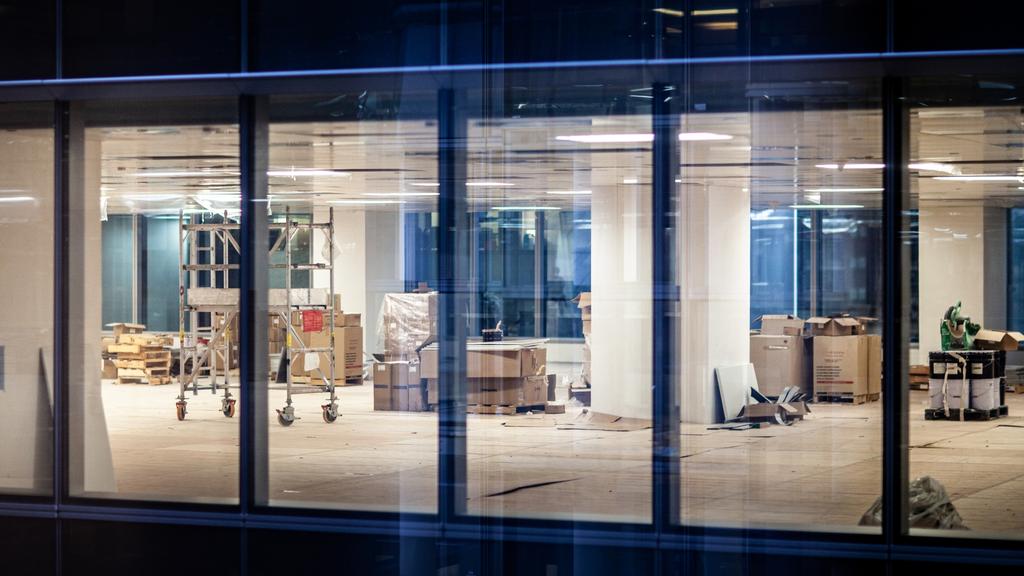Colliers: Companies are using AI to track how many employees are showing up to the office, and what they do with their day

Basking is the latest AI technology being used by companies to assess how big of an office they need and how to design the space they do use.
Melbourne office workers are having their office movements tracked and analysed by artificial intelligence.
And the new technology that assesses Wi-Fi use by employee devices is being used to calculate if businesses could be downsizing their office space.
Now in use by one of the city’s biggest commercial real estate firms, Colliers, the system called Basking is analysing where employees spend most of their time around the building — and the days they are most active around the office.
RELATED: Olinda’s Cuckoo Restaurant hits the market
Chef, TV presenter Scott Pickett offers a taste of Chancery Lane restaurant premises
Warning given to Melbourne CBD office space owners to consider selling up
With vast numbers of commercial property leases managed by the firm, it could soon mean that AI will be advising office managers on whether they can decrease or increase their office footprint.
For instance, global technology company MANN+HUMMEL began using the software in their Singapore office when the pandemic hit and there was a reduction in office attendance to try create a more desirable place to work based on Basking’s analytics.
Colliers head of workplace transformation and innovation Karen Primmer said organisations faced the challenge of fluctuating daily occupancy rates in the post-Covid world and wanted a clear understanding of how many people were in the office at any one time.

Ms Primmer said organisations faced the challenge of fluctuating daily occupancy rates in the post-Covid world, but AI could help find patterns to make better decisions around this.
“There’s lots of tools out there that can do it, but they’re quite expensive because you need to put in sensors to pick up the data,” Ms Primmer said.
“Basking works through Wi-Fi and it works through infrastructure that companies already have in place.”
She said it can identify how many devices, like a phone or a laptop, an employee has and gives a company a clear idea as to how many people were in the office using real-time data within two hours.
Ms Primmer said that all the data collected was anonymous and could only boil down to the movements of a team.
New research from Colliers shows generative AI is estimated to contribute $115b to the Australian economy by 2030.

The tech is expected to lead some offices to redesign their floorplans for better efficiency.
It has the potential to streamline lease administration, project management and portfolio strategy in the sector, according to the commercial real estate firm.
In the residential market, Barry Plant chief technology officer Darren McCoy said facial recognition at property inspections for lease or sale would be the next step in the integration of AI and real estate.
He said a camera at the front of the door could determine who you were as opposed to a real estate agent asking every person that came through a home what their name and email was.
Mr McCoy added that AI “bots” calling prospective buyers following up on inquiries would also eventually happen, with chat bots already integrated on company websites.
Sign up to the Herald Sun Weekly Real Estate Update. Click here to get the latest Victorian property market news delivered direct to your inbox.
MORE: Melbourne homes set for $55k lift in record boom
Geelong CBD supersite offers access to growth market
Car park in Melbourne’s CBD sells for $20m+, the biggest sale of the year
sarah.petty@news.com.au







